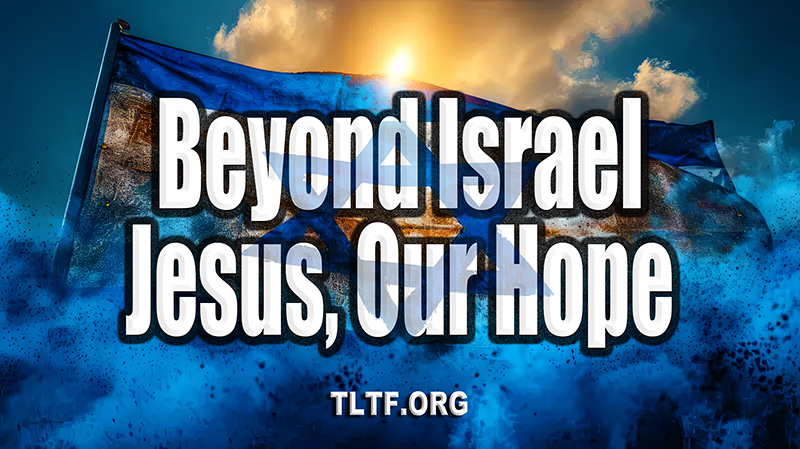
There’s no denying it—many Christians today are fascinated by “end times” discussions. Conversations about prophecy, signs of the times, and Israel’s role in it all seem to pop up everywhere. Israel, often called “God’s chosen people,” holds a unique place in these conversations. But what does it really mean to be “chosen”? Why did God choose Israel in the first place? And does that status still apply today in the way many people think?
To truly understand, we have to go back to the beginning—to a man named Abram. In Genesis 12, God speaks directly to Abram and gives him a promise that would shape history:
“Now Yahweh said to Abram, ‘Go from your country, and from your relatives, and from your father’s house, to the land that I will show you, and I will make you into a great nation. I will bless you and make your name great, and you will be a blessing. I will bless those who bless you, and whoever curses you I will curse. And in you all the families of the earth will be blessed’” (Genesis 12:1-3).
That last line is powerful—God’s heart from the very beginning wasn’t focused on one nation or group of people. His desire was to bless all families of the earth. It wasn’t about playing favorites; it was about opening a way for everyone to experience His love and blessing. From the very start, God has wanted relationship with humanity. Even back in the Garden of Eden, God blessed Adam and Eve (Genesis 1:28). His heart has always been for us to flourish and live connected with Him. Sadly, people often choose their own paths instead.
Abram’s grandson, Jacob—renamed Israel by God—had twelve sons who became the twelve tribes of Israel. After enduring slavery in Egypt, God raised Moses to lead them out and gave them a national calling at Mount Sinai:
“Moses went up to God, and Yahweh called to him from the mountain, saying, ‘This is what you are to say to the house of Jacob and tell the sons of Israel: You have seen what I did to the Egyptians and how I carried you on eagles’ wings and brought you to myself. Now then, if you will indeed obey my voice and keep my covenant, then you will be my own possession from among all peoples, for all the earth is mine. And you will be to me a kingdom of priests and a holy nation’” (Exodus 19:3-6).
This was a huge responsibility. Israel’s calling was conditional on their obedience and faithfulness to God’s covenant. But it wasn’t about elevating themselves above others—they were to be a “kingdom of priests,” a bridge between God and all humanity. Their mission was to bring the world back into relationship with God.
But like all of us, Israel struggled. Time and again, they fell short of their calling. The prophets lamented their unfaithfulness: “All we like sheep have gone astray. Each of us has turned to his own way” (Isaiah 53:6). Yet, Israel’s failure was not the end. God had a plan bigger and better than anyone imagined. Through the prophet Isaiah, He spoke of a coming “Servant”—one who would succeed where Israel fell short: “I, Yahweh, have called you in righteousness. I will hold your hand and will keep you and give you as a covenant for the people, as a light for the nations” (Isaiah 42:6).
That Servant was Jesus. He stepped into the role Israel couldn’t fulfill. Jesus became the light for all nations. He said, “I am the light of the world” (John 8:12). Through Jesus, God’s heart for all nations was fully revealed. And His mission didn’t stop there—Jesus commissioned his followers to take the good news to the ends of the earth (Acts 1:8).
Jesus became the true Israel—the ultimate priestly intercessor between God and humanity. Through Him, God’s love broke beyond borders. Now, anyone—regardless of background, nationality, or heritage—can become part of God’s family.
So, what does this mean for us today? Our focus should not be on exalting any nation or getting lost in nationalistic interpretations of prophecy. Our mission is clear: to share the love, hope, and redemption that Jesus offers to everyone. God’s heart has always been for all people. Through Jesus, that invitation is open to anyone willing to respond.
In the end, our calling is simple but profound: to follow Jesus wholeheartedly and share his hope with a world in need. The story of Israel points us to him—the true fulfillment of God’s promise and the source of our salvation. So instead of asking “What about Israel?” let us ask ourselves, “Am I living in the hope and love that Jesus offers—and am I sharing that hope with others?”
With love,


Comments
Brilliant and very moving. Well done brother!
Geo.